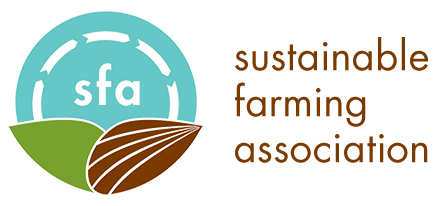Farm Skills 101 Diary: Birth, Butchering, and Bearings

Cassi Dutcher learns to drive a tractor.
By Cassi Dutcher • Farm Skills 101 Student

Holly Pearson removes a wheel bearing seal.
The third and final weekend of Farm Skills 101 was abundant with varied activities. At Seven Pines Farm in Verndale, Minn., we spent a significant amount of time handling dairy cattle. We learned how to put cattle in a head gate, assess health, administer medication and put in ear tags. We also practiced how to utilize the cattle’s natural flight zones to direct their movements in a way that caused the least amount of stress to the animal.
Students were involved in the full-life spectrum: helping a newborn calf acclimate to its new pen and butchering a lamb. And, of course, more fencing, which by this weekend was much easier than in Week One. For many of us, we had our first experience on a tractor and learned to drive, both forward and backward. We also hitched up a manure spreader and learned how to safely hook up the PTO.

Amy Fenn (left) and Cassi Dutcher build a gate for an animal pen.
Back at Paradox Farm, we learned how to assess and grease wheel bearings on a farm trailer – we completely dismantled the hub, cleaned and lubricated the bearings, and re-assembled it. While groups of two worked on bearings, the other students designed and built pens for the goats’ winter housing using some of the carpentry skills learned in Week One. Additionally, we examined how trailers can be used as appropriate moveable housing for livestock.
During the three weekends, we were introduced to a wide variety of farm skills. What I learned built well upon my already established familiarity with fencing and butchering, and now I have a much greater degree of competence with the skills.
However, my skill set was most profoundly impacted by those skills that I was introduced to for the first time. Both my pride and my typical human desire to not be too much of an imposition would have prevented me from seeking out help or offering to help with tasks such as driving a tractor or working on machinery. Having these skills introduced in such a supportive and fun environment now allows me to pursue more opportunities for greater knowledge with confidence and excitement.
It is sad to be done with Farm Skills 101, but the very intentional energy put into establishing a community that goes beyond the end of the class session will benefit us all. With SFA I enter a community that serves as a support and pool of knowledge from which to draw as my farm grows and evolves.
